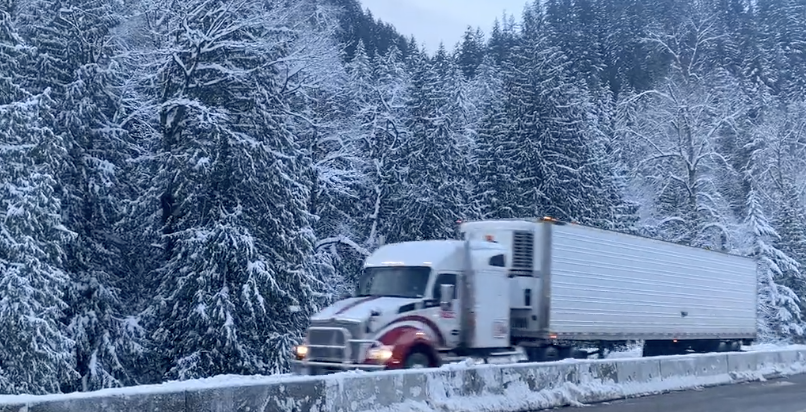The Coquihalla Highway (Highway 5) has reopened between Hope and Merritt to essential commercial vehicles only following a month of extensive repairs.
The highway was closed by multiple washouts on Nov. 14, 2021.
“The people who build and maintain roads in B.C. have a reputation second to none, and their response to the recent disaster has been remarkable,” said Rob Fleming, Minister of Transportation and Infrastructure. “Ministry teams, maintenance contractors and hundreds of workers going flat out in challenging conditions have allowed us to reopen the Coquihalla Highway today, giving B.C.’s commercial drivers a safe, efficient route between the coast and Interior.”
Effective today, Highway 5 is available to commercial vehicles with a minimum licensed gross vehicle weight (GVW) of 11,794 kilograms.
With most commercial vehicles moving to Highway 5, travel restrictions will be lifted from Highway 3 at 8 a.m. on Tuesday, Dec. 21, allowing the route between Hope and Princeton to be used for non-essential travel.
Travel restrictions have also been lifted from Highway 99 between Pemberton and Lillooet. However, vehicles over 14,500 kilograms GVW are still not permitted on this section of Highway 99.
“Today’s reopening of the Coquihalla Highway is a testament to the strong working relationship between the BC Road Builders and the Ministry of Transportation and Infrastructure,” said Kelly Scott, president, BC Road Builders and Heavy Construction Association. “This relationship allowed the road builder industry and government to come together almost immediately, unified in the goal of reopening this vital link. We are grateful for all the women and men who worked safely and tirelessly around the clock to achieve our goal. “
When travel restrictions are lifted from Highway 3 and Highway 99, these routes become available for general use. For drivers travelling these highways, the ministry urges preparation and patience. Drivers can expect delays and congestion and are encouraged to consider alternate options or avoid highway travel unless necessary.
“Having use of the Coquihalla Highway brings more predictability to the movement of goods through British Columbia,” said Dave Earle, president and CEO, BC Trucking Association. “This an important step toward restoring our supply chain, and our members appreciate the extraordinary efforts of everyone involved.”
Highway 3 and Highway 99 are mountainous highways where weather conditions can change quickly, and people should be comfortable driving in winter conditions. The Province’s maintenance contractors are out in full force, but it is important that drivers do their part and drive to conditions, and check DriveBC before setting out.
Drivers are reminded that B.C.’s winter tire and chain-up regulations are in effect. Other safety tips for winter driving apply, including travelling with a full tank of gas, food and water, and warm clothes.


